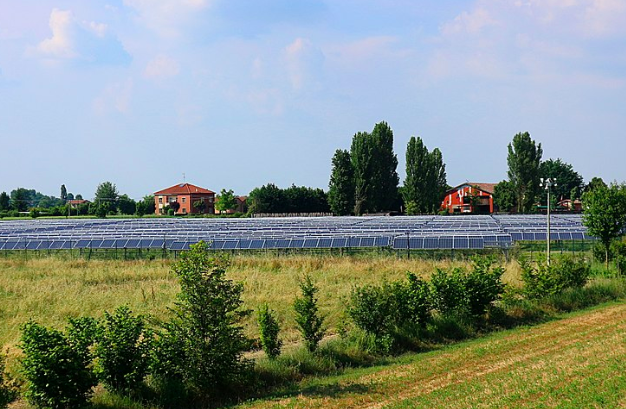Release Time:2019-12-05
The Italian utility has agreed to buy the PV development pipeline for an undisclosed sum via a subsidiary, and vowed to start building its first large-scale, subsidy-free PV plant in the early months of 2020.

Image: Wikimedia Commons
Italy’s A2A Renewables, a unit of Brescia-based utility A2A, has signed a deal to buy a 1 GW solar development pipeline from Chinese PV module maker Talesun, as part of its push to start building subsidy-free solar projects.
In the early part of the coming year, A2A Renewables said it also plans to start building its first large-scale “market parity” project, at an unspecified site in the province of Foggia.
“The construction of the first plant without incentives and a very significant portfolio of future opportunities in solar power confirms the strategic direction of changing the production mix to include renewable solutions and enhancing certain key skills of our group, such as the management of the production portfolio and the client base,” said A2A CEO Valerio Camerano.
The group’s 1 GW acquisition from Talesun follows other recent agreements to acquire roughly 100 MW of PV projects in Trentino Alto Adige, Piedmont, Lombardy, Emilia-Romagna, Tuscany, Lazio, Abruzzo, Marche, Apulia, Campania, Calabria, Sicily and Sardinia, it said. It also follows the group’s formation of a joint venture with Talesun in late 2018, under which it bought the Chinese company’s Italian PV plant portfolio of 43.2 MW, with plans to develop another 300 MW of market-parity projects.
In addition, the most recent Talesun deal also coincides with the A2A group’s strong showing in Terna’s 5 GW capacity market auction this week, in which it won all of the capacity offered by the Italian transmission system operator.
In June, Talesun revealed plans to add 1.5 GW of PV module production capacity at its factory in Rayong, Thailand. The upgrade is part of efforts to focus on the U.S. market, where it claimed to have a backlog of orders for hundreds of megawatts of PV modules.
US order demand Soaring, Talesun’s capacity in Thailand accelerated to 2 GW
2019.12.09Aiming C&I EPC Service, TALESUN Start A New Chapter
2019.11.01Talesun Led 315MW, the Largest PV Solar Project in Argentina Finished
2019.10.14New Generation PERC Product of Talesun with Conversion Efficiency Exceeding 23.1%
2019.08.21Talesun pivots Thailand fab towards sanctioned US market with high efficiency retrofit
2019.06.28Talesun Supplies 99.5 MW Solar Modules for the Largest PV Projects in Belgium
2019.06.27